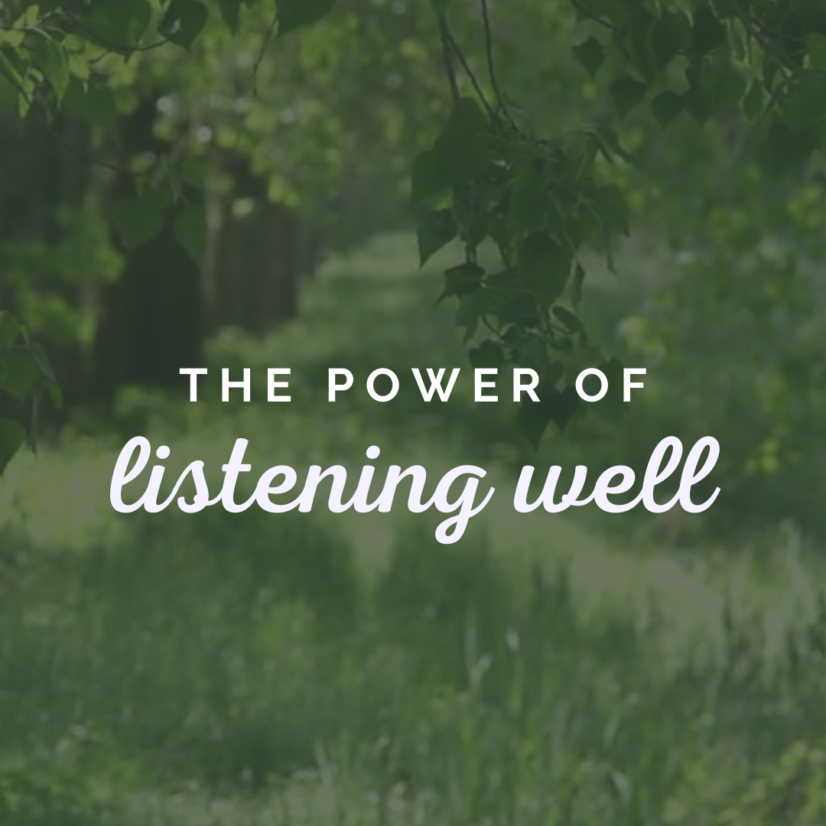Recently I’ve seen countless examples of people who are hurting, struggling, confused or angry – and they feel completely alone. It seems like the cause for some of the isolation can be traced back to friends, family, or trusted confidants who have no idea how to just be present…how to just listen.
We’re busy.
Our thoughts are going a million miles per hour. We’re used to having so much information flying at us, that to stop, press pause, focus, and just listen requires so much discipline.
We also don’t know what to do with pain.
When someone we love is sad, hurting, or angry, we mistakenly assume that a loving response would be to fix their pain so we try to help by making their pain smaller. Most people would prefer that we actually honor their pain. That instead of trying to fix, we would just listen and empathize.
I say “just” listen, but actually, listening is so basic that we often miss how powerfully important it is. We also tend to perceive ourselves as better listeners than we actually are.
Not only does listening strengthen our relationships by “cementing our connection with one another, it also fortifies our sense of self. In the presence of a receptive listener, we are able to clarify what we think and discover what we feel. Thus, in giving an account of our experience to someone who listens, we are better able to listen to ourselves. Our lives are defined in dialogue.” (The Lost Art of Listening by Michael Nicholsl, p 10)
Here are a few questions to help us think further about the powerful importance of listening and how well we listen:
- Who is the best listener you know?
- What makes that person a good listener?
- How do you feel when you are with that person?
- What can you learn from that person that would make you a better listener?
- What do you hesitate to talk to your partner about? Why?
- What happens to those withheld thoughts and feelings?
- What are the consequences of that withholding for you? For the relationship?
- What conversations would you like to go differently?
- If people think you aren’t listening to them, what will they assume it means? What will this lead to?
- If people think you are listening to them, what will they assume it means? What will this lead to?
The next time something is really bothering you, notice if something holds you back from sharing that with someone. What fears or expectations do you have about what would happen if you shared? And if you do share, what happens?
(Adapted from “The Lost Art of Listening: How Learning to Listen Can Improve Relationships” by Michael Nichols, 2009.)
Written by: Mindy Pierce, MA, LPC

